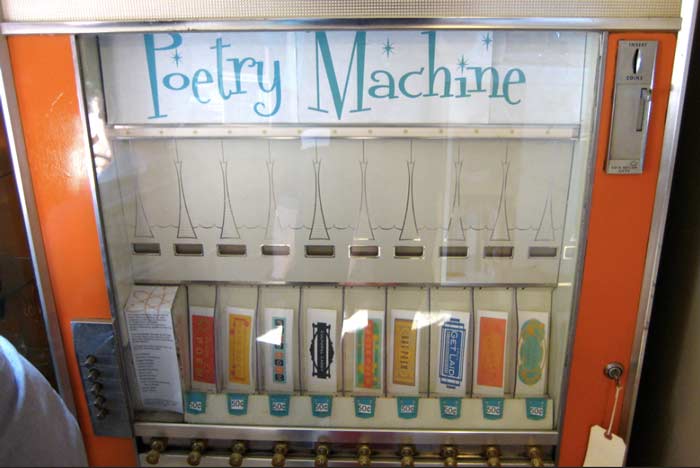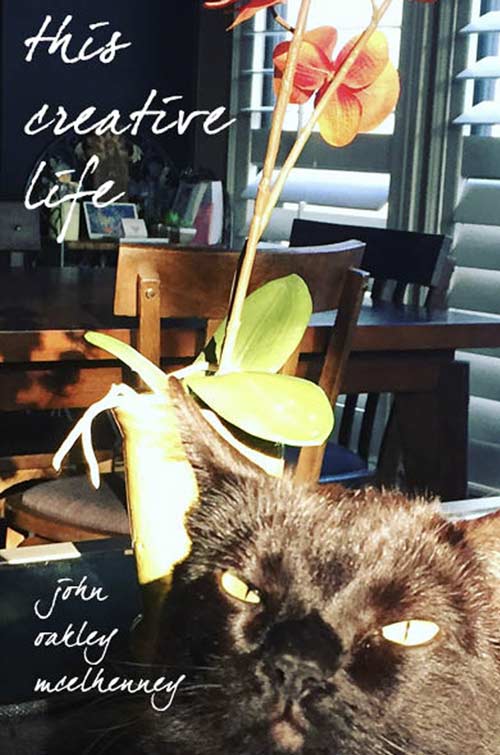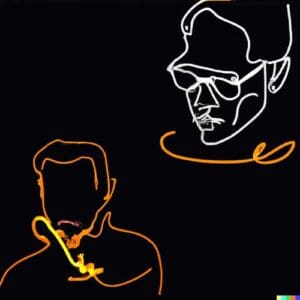Generative AI is cool. When ChatGPT was announced to the world, a year ago, we all dove in and were mesmerized by this new(ish) accomplishment in technology and computing power. Many of us found ways to use GPT for routine editorial tasks. “Rewrite this paragraph for clarity and keyword inclusion.” Boom. A crappy draft from a colleague becomes a workable draft. “Rewrite these bullet points in an active voice.” Our resumes would never be the same.
As a writer, for a while I was concerned about GPT’s magic trick. Then, I spent some time using the LLMs only to discover they have NO SOUL. I mean, that’s obvious, right? But, the human thread, woven even in this little article, is uncloneable. Let me explain.
Here’s a gross oversimplification of how the GPTs of the universe currently do their magic.
- They hold amazing relational databases of language patterns. And given a set of words, the *ai* simply guesses at the next best word. Over and over and over again.
- They mimic tone and syntax from a vast sample of writing.
- There is zero human intelligence in the current models. They do not guess. The don’t really supply new ideas. They can’t make creative jumps.
- The are terrible at free verse poetry.
I can hear your eyes roll at that last one. Poetry? What’s poetry got to do with anything?
In my examples above, ChatGPT does really great at taking written words, and shuffling them into more words. And the robots are tireless. “Regenerate” does not cause a groan, like it would from a real writer. But the limits of the mimic are obvious once you start trying to incorporate LLM math into your workflow. The logic behind the best *ai* platforms does not understand nuance, flow, metaphor, or memory. Let’s try one, as an example.



Okay, so let’s examine.
Over and over “free verse” is not an instruction set powerful enough to outweigh the poem = rhyme code in ChatGPT 3.5. The first attempt fails. GPT acknowledges its mistake and tries again. Does it get better? Does a pattern recognition magic trick have the power to understand melancholy?
In shadows cast by memories, I roam,
changes to
Shadows dance on the walls of solitude,
Somewhere the word “shadow” = “melancholy”.
The Human Thread
So what if ChatGPT can’t really write poetry? That’s not a big part of our lives, right?
The poetry of life is what makes us human. Even if we don’t know what poetry really is, the river of thoughts flowing through our monkey minds is made up of language. The synapses we’ve formed and reformed over our lifetimes have created a web of language, image, and mood all cross-connected and as individual as you are. Your life is the magic. The pattern recognition, repeat and regurgitate in a new form, is not really intelligence. It’s math.
Even in my sentences, I stump the *ai* chump of Grammer.ly.

I’m constantly having to ignore Grammerly’s corrections. My pattern is to be random and surprising. There is very little surprise when asking an AI to write something original. How original can an *ai* be that is a summation of billions of lines of text? How accurate can Grammerly be, even after years of training and input from actual humans?
What’s the next evolution for *ai*? Are we worried about creating a Terminator moment? We know some of our fears are already coming true about *ai*. The mid-level desk job will be completely wiped out by better-trained LLMs. Marketing and sales strategies based on previous metrics and math will get better and better. Those marketing models will come up with the next big idea. They will come up with the next blender-made strategy incorporating data models and google analytics. And that’s happening now. AI is better at SEO than any human will ever be. The search engine optimization world is going to get a lot tougher for the generalist with a spreadsheet and GA.
It is unlikely, however, that GPTs are going to come up with an innovative idea for your next product launch. It does not have the history. Sure, it has a lot more data than any 1,000,000 humans, but the monkeys never did recreate Shakespeare. The AI isn’t going to write original “coming of age” stories. It could mine all the literature in the world and still not do more than synthesize a story from the parts of all the previous stories.
When I have a human thought my chemically-wired brain lights up in many areas. More than words in a database, my mind travels in time (future and past) and hears old songs, imagines old lovers, and that one summer before high school. Now, try and understand how an AI would write even the simplest original coming of age story. The concept is well documented. Catcher in the Rye being a great example of the data set available to ChatGPT. And, no Catcher will be written by AI. The poetry, the human randomness, the lifetime development of synaptic connections, are beyond the reach of the most powerful AIs.
Quantum Is Sci-fi
Sure, we’re hearing a lot about quantum this and quantum that. An idea that a ChatGPT 32.2 is going to have ten billion times the power of today’s models, and still not be able to remember ONE ORIGINAL memory. Yes, AIs are going to get better, faster, and harder to detect. The phrase “written entirely without artificial intelligence” is going to be a new label of … What? Quality? Nope. Quantity? Nope. Originality? 100%. You can’t find the original joy of Catcher in the Rye by reading the cliff’s notes. You might pass the quiz. You’re going to miss the magic that comes alive in your mind when Holden speaks. The dance between our human brains and the language we use is what makes us human. Every single written word put into a database and attached to some future-mega AI isn’t going to give us the next Salinger.
Try to explain Walt Whitman’s “Song of Myself” to some computer intelligence. You’d be better off just reading “I Sing the Body Electric” to a four-year-old. Some of the words are going to make sense. The story, the life, the love, the potency, however, is going to be missed. Still, poetry is not everything.
There is still poetry in the creative process that computers never replicate or regenerate no matter how many processors and retries we give them. I don’t think “machine poetry” is going to catch on anytime soon.





